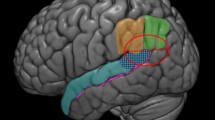Abstract
Gilbert and colleagues are to be commended for drawing our attention to the need for a sounder empirical basis, and for more careful reasoning, in the context of the neuroethics debate on Deep Brain Stimulation (DBS) and its potential impact on the dimensions of personality, identity, agency, authenticity, autonomy and self (PIAAAS). While acknowledging this, this extended commentary critically examines their claim that the real-world relevance of the conclusions drawn in the neuroethics literature is threatened by the fact that the concepts at the center of the discussion have “weak empirical grounding”. First, I show that while some possible understandings of multifaceted concepts like identity, authenticity and autonomy may indeed be unsuitable for a purely empirical inquiry, this is not the case of all of them. Secondly, I call into question the authors’ apparent suggestion that reliance on constructs involving an irreducibly normative dimension makes for a suboptimal state of affairs, and that they should ideally be replaced with substitutes taken from the language of neuroscience or social science in order to ensure an adequate empirical grounding for the debate. Such a suggestion, I argue, commits the authors to a controversial reductionist view in metaethics that the valid empirical concerns they raise in the rest of their article do not presuppose, and which could potentially us lead to lose sight of important ethical considerations.
Similar content being viewed by others
Notes
And possibly “agency” as well: see [1], p. 10.
For instance, Schechtman’s account of narrative identity would again seem to require the incorporation of third-party testimony, since it states that a person’s inner story has to be consistent with those other people tell about her if it is to constitute her identity [2].
To be precise, I would differ from those authors by drawing a further distinction between “first-person” and “third-person” subjective authenticity, with the former referring to the subject’s own perception, and the latter, to the perception by others of whether she is truly being “herself” or not. For the sake of the present discussion, however, I shall ignore this further distinction, and will speak of subjective authenticity to refer solely to the first-person variant.
This is compatible with there being adults with underdeveloped moral capacities (e.g. psychopaths, perhaps) who would indeed obtain better moral guidance overall by systematically following the majority view rather than striving to make up their own minds. Still, these people will be using a “crutch” to navigate the moral space, and will not count as engaging in genuine ethical reflection.
Which is not to say that, if this is the case, the properties these concepts refer to must exist in some Platonic realm separate from the natural world. A supporter of this view can certainly recognize that ethical properties are strongly dependent for their existence upon natural ones (perhaps “supervening” on them), as long as they are not reducible to the latter.
I am grateful to an anonymous reviewer for his/her helpful suggestions on how to clarify some of the points made in this paper.
References
Gilbert, F., Viana, J. N. M. & Ineichen, C. 2018. Deflating the "DBS causes personality changes" bubble. Neuroethics.
Schechtman, M. 1996. The constitution of selves. Ithaca: Cornell University Press.
Erler, A. 2011. Does memory modification threaten our authenticity? Neuroethics, 4 (3): 235–49.
DeGrazia, D. 2005. Human identity and bioethics. Cambridge: Cambridge University Press.
Gilbert, F., E. Goddard, J.N.M. Viana, A. Carter, and M. Horne. 2017. I miss being me: Phenomenological effects of deep brain stimulation. AJOB Neuroscience 8: 96–109.
Fleeson, W., and J. Wilt. 2010. The relevance of big five trait content in behavior to subjective authenticity: Do high levels of within-person behavioral variability undermine or enable authenticity achievement? Journal of Personality 78: 1353–1382.
Gino, F., M. Kouchaki, and A.D. Galinsky. 2015. The moral virtue of authenticity: How inauthenticity produces feelings of immorality and impurity. Psychological Science 26: 983–996.
Elliott, C. 1998. The tyranny of happiness: Ethics and cosmetic psychopharmacology. In Enhancing Human Traits: Ethical and Social Implications, ed. E. Parens, 177–186. Washington, DC: Georgetown University Press.
Parens, E. 2014. Shaping our selves: On technology, flourishing, and a habit of thinking. Oxford: Oxford University Press.
DeGrazia, D. 2000. Prozac, enhancement, and self-creation. Hastings Center Report 30 (2): 34–40.
Juth, N. 2011. Enhancement, autonomy, and authenticity. In Enhancing human capacities, ed. J. Savulescu, R. Ter Meulen, and G. Kahane, 34–48. Oxford: Blackwell.
Quaglino, V., Y. Gounden, E. Lacot, F. Couvillers, A. Lions, and M. Hainselin. 2016. Talk the talk and walk the walk. Evaluation of autonomy in aging and Alzheimer disease by simulating instrumental activities of daily living: The S-IADL. PeerJ 4: e2351.
Christman, J. 1987. Autonomy: A defense of the Split-level self. Southern Journal of Philosophy 25: 290–291.
Benson, P. 1991. Autonomy and oppressive socialization. Social Theory and Practice 17 (3): 385–408.
Casebeer, W.D. 2003. Natural Ethical Facts: Evolution, Connectionism, and Moral Cognition. Cambridge: MIT Press.
Aristotle. 2000. Nicomachean Ethics, trans. R. Crisp. Cambridge, Cambridge University Press.
Author information
Authors and Affiliations
Corresponding author
Ethics declarations
Conflict of Interest
The author declares that he has no conflict of interest.
Additional information
Publisher’s Note
Springer Nature remains neutral with regard to jurisdictional claims in published maps and institutional affiliations.
Rights and permissions
About this article
Cite this article
Erler, A. Discussions of DBS in Neuroethics: Can We Deflate the Bubble Without Deflating Ethics?. Neuroethics 14 (Suppl 1), 75–81 (2021). https://doi.org/10.1007/s12152-019-09412-9
Received:
Accepted:
Published:
Issue Date:
DOI: https://doi.org/10.1007/s12152-019-09412-9




